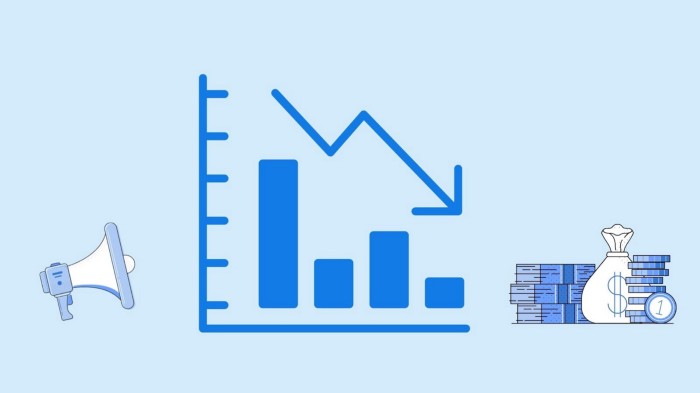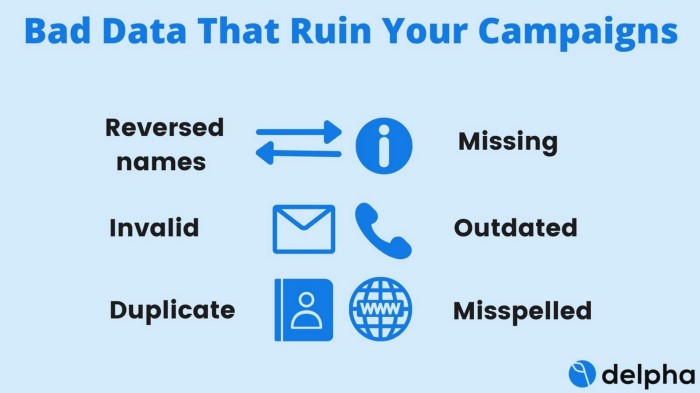How to Improve Digital Marketing with High Quality Data
Published by Delpha on September 21, 2022
Today it’s not sufficient to be just data-driven; we need to be quality data-driven. Here are some insights on the post-covid challenge affecting many digital marketing strategies today and how AI can assist in overcoming it.
You have probably seen many articles a couple of years back stating that data-driven marketing was the trend for new growth and greater profitability. This approach helps find the right target, whether online or in-person, to drive more sales, extend CLV, and improve marketing operations’ ROI.

However, the market has matured enough that it’s not sufficient to be just data-driven; today’s need is to be quality data-driven. I will share some insights on the post-covid challenge affecting many data-driven strategies today and how AI can assist in overcoming it.
Before we dive into the problems, just a quick overview of the benefits of data-driven marketing:
- Personalized, highly-targeted campaigns
- More consistent messaging
- Actionable & precise insights on operations
- Better segmentation
- Knowledge of your customers beforehand
- Buzz creation
- Improved product development
- Better experience for your customers
- Increased opportunities for cross-selling and upselling
Having a data-driven strategy is of course a necessary step in our current competitive landscape, however, inputting insufficient or inaccurate data into your operations will not produce the desired results. The GIGO concept reminds us that the wrong inputs will result in bad outputs.
Many marketing managers come across data quality issues in their CRMs that might seem like a minor problem, but are growing into huge losses. Digital marketers should know that good data records will save their productivity, campaign success and email domain.
When data isn’t correct and up-to-date, marketers have to spend a lot of time on cleaning their lists and verifying the correct information. If they skip this step, then there is the risk of wasting resources on the wrong contacts or damaging your email domain from sending out-dated or incorrect emails that bounce.
Next are the challenges with data-driven marketing actions and our suggested tips for resolving.
1. Finding the right people
As a marketer, you probably know that you cannot target all the people that use the Internet to sell your wifi provider. Instead, you need more precise data – like consumers unsatisfied with their current service provider or people who just moved to a new place and are looking for an Internet connection.
65% of data from online forms are, on average, invalid. Website visitors sometimes insert their last name as their first name, misspell their companies’ websites and make other errors whether intentional or not. Marketing teams work on refining this data to target the end-users more accurately and effectively. However, the process to double check is tedious and can easily take hours out of the day.
Moreover, 30% of employees switch their careers every year on average, so you can imagine how many of your leads’ phones, emails, and titles change. So how can you keep your data up-to-date without spending countless hours a day double checking all your key contacts?

Delpha takes a multi-angle approach to solving data quality issues in your database by attacking all the dimensions of data such as duplication, age, completeness, accuracy, consistency, etc. We apply AI to process the data more efficiently and intelligently detect the problems to which we push the actionable insights and solutions to the user with our engineered recommender system.
To help your marketing team find the right people, this solution can reverse names, check the website for a spelling error, correct product or activity history in just a few clicks without you needing to spend a lot of time on the research.
Delpha learns from your feedback and SFDC interactions, so no worries, if the contact’s name is really Ricky Bobby and not the reverse, you will not be alerted about it once again.
Take an ABM campaign for example. To succeed with the campaign, you need to identify the account, gather the right contacts, create the messaging and execute the emails/marketing materials. Delpha can assist to ensure all the data and contact info involved in the account are accurate and up-to-date, ensuring a much higher success rate of the campaign.
Personalized emails are better with accurate and correct information. Otherwise, if the required data is erroneous, you risk losing the interest of your prospects or not even reaching them at all.
2. Driving more sales
Generating more prospects, converting leads, and driving more sales is what every company wants. Yet, sometimes there is no connection of data within the CRM organization.
High-performing salespeople are 1.5 times more likely to base anticipations on data-driven insights. However, 79% of data about opportunities gathered by sales reps are never entered in the CRM system. This results in incomplete information, and consequently, missed opportunities and worsened product recommendations to existing or new customers.

75% of data loss happens because of human error. It is natural that people input the exact contact details, forget to check the spelling of emails, and do not look at whether the account already exists. You need to make sure your teams are empowered with a solution that helps maintain the records valid, complete, and up to date. You could either consider using some data cleaning tools or use features that Salesforce proposes. However, there are limitations to these solutions.
The challenge is that even if you have rules in place to look after the quality of inputs, there are chances for them to be broken. For example, if you oblige employees to insert a valid SIC code for contacts, they may find ways to deceive systems by typing something like “0000” or “1234”.

Delpha is here to help you clean and enrich your data. It not only indicates whether the SIC code (or any other field) is invalid but also assists in finding the correct one so sales reps don’t waste time researching it.
Moreover, Delpha’s recommender system pushes only high-priority tasks. It means that the more you use the AI solution and SFDC, the more it gets to know you and your organization’s needs to provide better actionable insights. For example, Delpha will scan the data and see whether you need to update an email address for an important contact or suggest following up with a lead that the solution has assessed to be a new potential opportunity based on other sales and lead activity.
Overall, Delpha assists in labeling, classifying, and completing the data to save time and energy to focus on suitable product recommendations, which improves cross-selling and up-selling opportunities and generates more sales.
3. Improving ROI
If you want to improve your ROIs and marketing operations, you need to look after the quality of your CRM data. 41% of B2B marketers believe that the most significant issue they face when increasing their ROI is poor data across CRMs. It occurs because bad records lead to wasted resources.
Forrester posits that 21 cents of every media dollar are wasted as a result of poor data. That is around $16.5 million on average for businesses. It happens because bad records infiltrate your database, and you spend money on storing, reconciling, and removing them rather than acting on the insights. In addition, 37% of surveyed managers claimed bad data quality resulted in wasted marketing spend.
The amount of data created by consumers doubles every two years. Your Salesforce already has accounts with the same name. Imagine you are doing an email campaign, and you need to send a discount of 15% to your leads or customers. There is a high chance that you will end up sharing special offers with the same customer twice (or more depending the number of duplicates).
26% of marketing campaigns suffer from bad data quality. No wonder – with all these duplicate contacts and employees switching to other companies, you risk sending the same emails to irrelevant people, who quickly become irritated and click on “unsubscribe.”
Moreover, employees may get overwhelmed with bad data and lose precious time. All teams are bogged down by removing bad quality records – 32% of marketing teams’ time, over 50% of sales reps’ time. The less productive the teams are, the less profitable your business is.

Delpha helps to reduce wasted resources and make effective decisions by automating time-consuming tasks. For example, you can reverse the first and last name in just a few clicks. The AI solution also allows you to deduplicate intelligently: you can set the relationships of accounts and merge them the way you want. In addition, Delpha detects, alerts, and fixes the data quality issues that are a high priority for you right now.
Why AI? And Why Marketers Should Care?
Inconsistent, missing, duplicate, and invalid data corrupts the reports and prevents marketers from analyzing the results effectively. So how are you going to make your intelligent decisions and future campaigns if the insights are not actionable?

If you download a data cleaning tool, it will help you detect invalid emails or indicate inexistent contacts, so you can go and remove or modify them. However, the challenge with batch processing is important information can get loss as there is no human input during the processing.
You will probably receive many notifications about an outdated phone number or a job title change which will inevitably irritate you and grab your attention. But which data problem exactly to begin with? The duplicate accounts, missing phone numbers, or reversed names to run your email campaign?

The answer is – it depends on the context and each marketer’s use of SFDC. Delpha, an AI-powered solution in Salesforce, leverages AI & ML to prioritize which data problem requires an immediate response.
Moreover, you are alerted about the issue and taken to the problematic page and fixed right away. To improve your CRM’s adoption and productivity, you need to look after the quality of your data, which is why Delpha is there to help you.
This AI solution looks after each data dimension to augment your business efficiency in your entire organization. Delpha also learns from your feedback to prevent the future creation of bad records. Here are some of the use cases of how Delpha helps in data-driven marketing:
- Fix reversed names: receive analysis on the names and update in just a couple of clicks
- Correct websites and emails: website domains are checked in real-time notifying the user of an Account’s website problem and thus if the emails are using the wrong domain.
- Enrich data: Delpha can help enrich account and contact data.
- Eliminate duplicates: AI can better detect potential duplicates to make the process more efficient.
- Save resources: fix inaccurate data in real-time to prevent bad data from entering marketing campaigns.
Effective marketing campaigns are data-driven, but the quality of your data is going to make all the difference in today’s digital era. Target the right people, drive more sales and improve the ROIs and marketing operations
Want to learn more about Delpha?






